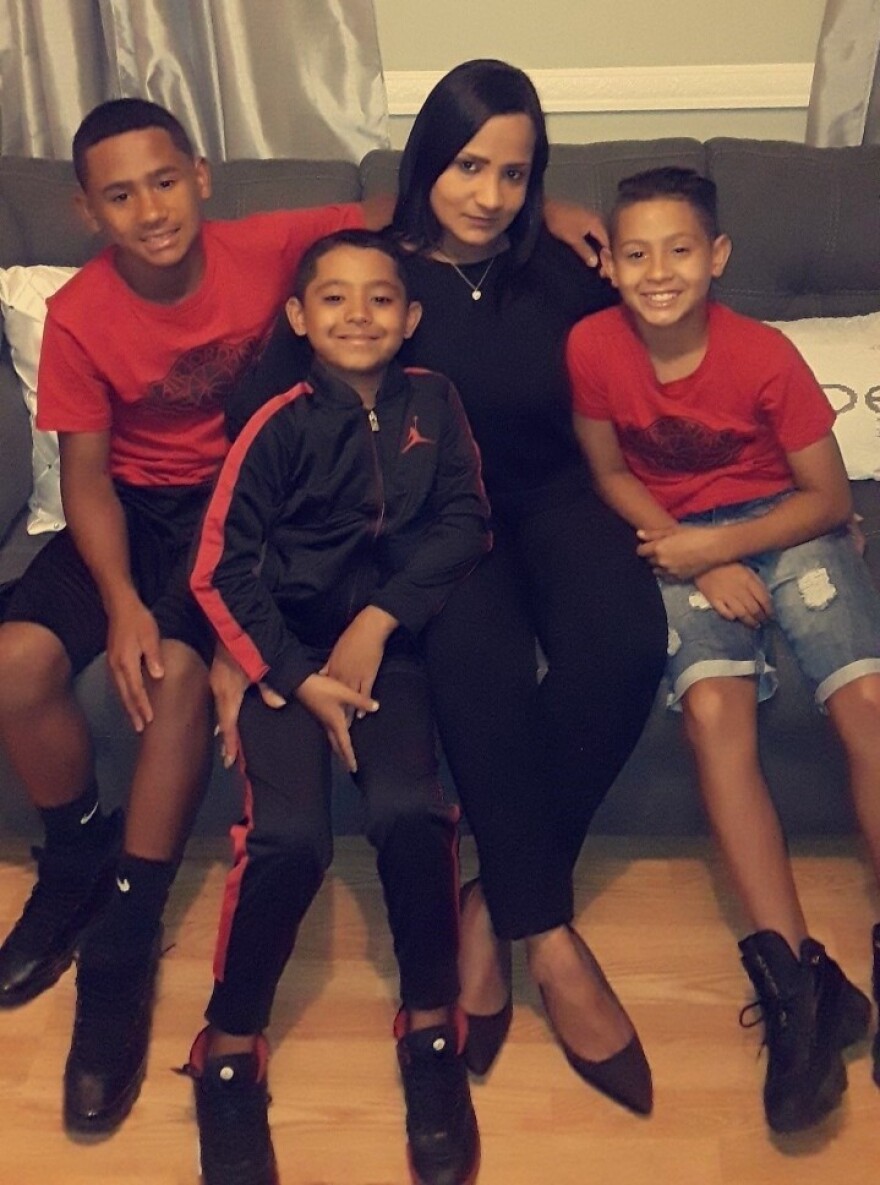Not far from downtown Nashua, Carla Gomez is hosting a 77th birthday party for her uncle.
Three generations of the family mill around the house with new friends, eating and chatting in a kitchen bedecked with balloons and ribbons.
There’s a lot of laughter here today, but there’s also some reflection; the last time they celebrated this birthday, the family was living in Puerto Rico.
Then came Hurricane Maria.
Carla Gomez, her husband, and her three kids lost their house and nearly all of their belongings.
“It was really shocking, to see the place you've been building for seventeen years to be destroyed in one day," she says. "It’s something you can’t really explain."
In the weeks after the storm, there was no clean water or electricity, and barely enough fuel in Puerto Rico.
Gomez regularly waited in the ATM line for five hours to get money for basic neccessities, only to learn once she reached the machine that there was no cash left at the bank.

She watched neighbors debate whether to leave the island or rebuild.
Then, she got a call from Puerto Rican-born friends living in Nashua. Gomez calls them the first of many ángeles - angels - who have helped her after the storm.
"They simply got us plane tickets, and said: here's the date for when you'll arrive to Nashua."
For six months, the family lived in a Nashua hotel room that FEMA paid for as part of a temporary assistance program for Puerto Rican families who had lost their homes.

While living in the hotel, Gomez enrolled her kids in school.
Now, a year after Hurricane Maria, Gomez says it’s the educational opportunities that are keeping them in New Hampshire.
"In Puerto Rico, tons of schools closed after the storm," she says. "The most important thing is children's education and it's now broken."
Schools in Puerto Rico were floundering even before the storm, due to Puerto Rico's debt crisis and the government's austerity measures. After the storm, the government closed an estimated 265 schools permanently.
In Nashua, Gomez’ kids and about 30 other Puerto Rican kids who came after Hurricane Maria are enrolled in public schools as English Language Learners.

Her kids are making the adjustment.
"What do you miss about Puerto Rico?" she asks them after the birthday party.
"Mi familia, y la playa," they respond - My family and the beach.
Tracking how many Puerto Ricans have relocated since Hurricane Maria is tricky. Since Puerto Ricans are US citizens, there’s no good immigration data. But researchers estimate over 100,000 have moved to the US permanently in the last year.
In New Hampshire, many moved to Nashua, where there’s been a Puerto Rican community for decades.
Nate Andino grew up in Nashua, but his family still lives in Puerto Rico.
"Every single Puerto Rican person that I know that lives in this community has had someone affected in their family," he says.
Some of his family moved to the US after the storm, but his grandmother refuses to leave Puerto Rico. Half of her house is gone and the family is trying to rebuild it for her.
"That’s her home," Andino explains, "That’s where she was born; that’s where she grew up. She’s like 'This is where I’m gonna die. I love my island and I’m never going to leave.' And I get it, but we’re worried, you know? There are certain things that we can’t provide for her, like toilet paper."
Toilet paper, building materials, electricity - a year after Hurricane Maria, these things still can’t be taken for granted in Puerto Rico.
Right before the storm, Carla Gomez had graduated cum laude with a degree in criminal justice.
She brought her diploma and transcript to organizations in Nashua for help writing a resume in English and getting a job.
Gomez is now enrolled in English classes, has a paid internship with New Hampshire Employment Security, and hopes to work as a bilingual paralegal here once she masters English.
Gomez’s husband is still living in Puerto Rico, helping their family rebuild. As to whether Gomez will ever move back, permanently?
Gomez hesitates.
"This question is very hard. I love Puerto Rico - I need to go again and again and again but right now doors here are opening for me," she says. "I’m working hard and determined for the best future for me and my children. So for right now, no."



